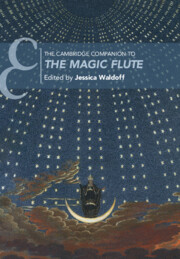Refine search
Actions for selected content:
6 results
Chapter 12 - Assessing Wilhelmine Schröder-Devrient: Influence, Genre, and Voice
- from II - People
-
-
- Book:
- Wagner in Context
- Published online:
- 14 March 2024
- Print publication:
- 14 March 2024, pp 122-130
-
- Chapter
- Export citation

The Cambridge Companion to The Magic Flute
-
- Published online:
- 24 November 2023
- Print publication:
- 02 November 2023
5 - Staging Imperial Identity
-
- Book:
- Music Theatre and the Holy Roman Empire
- Published online:
- 14 June 2022
- Print publication:
- 07 July 2022, pp 218-266
-
- Chapter
- Export citation
Introduction: Music for an Imperial Stage
-
- Book:
- Music Theatre and the Holy Roman Empire
- Published online:
- 14 June 2022
- Print publication:
- 07 July 2022, pp 1-41
-
- Chapter
- Export citation
12 - German National Identity and Operatic Italianità
-
-
- Book:
- Italian Opera in Global and Transnational Perspective
- Published online:
- 17 March 2022
- Print publication:
- 24 March 2022, pp 239-260
-
- Chapter
- Export citation
Chapter 27 - World War I
- from Part V - In History
-
-
- Book:
- Richard Strauss in Context
- Published online:
- 08 October 2020
- Print publication:
- 29 October 2020, pp 247-255
-
- Chapter
- Export citation
